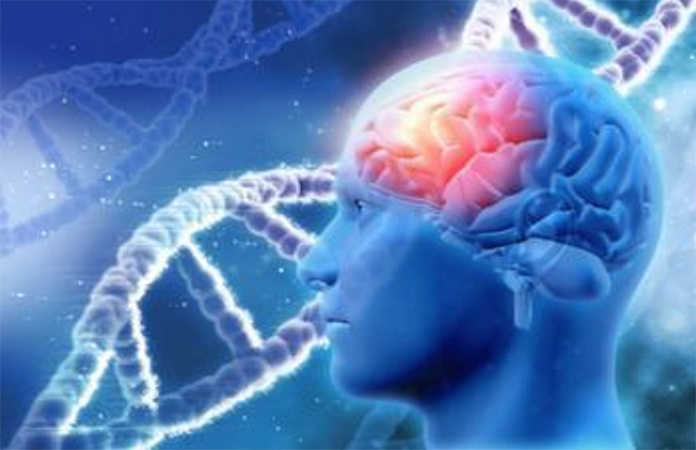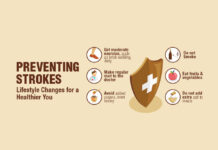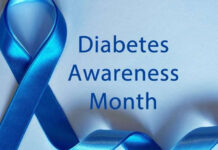
There are 4 Pillars of Alzheimer’s Prevention—that we can better protect and care for ourselves and for our loved ones who are struggling with this disease.
The 4 Pillars of Alzheimer’s Prevention are:
Diet and Supplements—Just like the rest of your body, your brain needs proper nutrition, blood flow, energy, and care. Diet and nutrition can prevent and help treat memory loss.
Stress Management—The effects of the daily grind on your body are well known, but our brain also suffers when we are stressed out. Find out the easy stress-relieving techniques that can dramatically reduce your risk for developing Alzheimer’s.
Exercise—It’s simple: if you want to maintain a healthy body and mind, you must exercise. But, in addition to physical exercises, it’s time for you to discover how mental exercises are essential for your health and well-being.
SpiritualFitness—Developing your Spiritual Fitness, your body-spiritual well-being, may very well help reduce your risk of mild cognitive Impairment (MCI) and even Alzheimer’s.
NATURAL HEALTH FOODS AND SUPPLEMENTS
One of the best ways we can feed our brain for better memory is by avoiding a diet high in trans-fat and saturated fat. These fats, such as those from animal products (especially red meats), can cause inflammation as well as produce free radicals. As we know, free radicals are a normal by-product of your metabolism, but in high quantities, they
- Eating foods that are high in antioxidants like vitamins C and E is a wonderful natural way to eliminate free radicals from your body.
- In a similar way, scientists believe that a vast intake of fruits and vegetables, eating fish rich in omega-3 oils and vegetarian protein substitutes (such as soy) are
protectiveagainst memory loss.
The ideal prevention diet breaks down like this:
- If you are serious about the prevention of Alzheimer’s and improving memory loss, Be sure that vitamin formula you choose contains folic acid and vitamin C.
- Folic acid reduces homocysteinelevels—high homocysteine levels put you at risk for both heart disease and memory loss.
- Vitamin C has been shown to reduce your risk of Alzheimer’s disease by 20% when taken with vitamin E.
Consider including the following memory-specific nutrients in your daily vitamin plan:
Coenzyme Q10
Alpha lipoic acid
Ginkgo biloba
Omega-3’s
Acetyl-L-carnitine
For moderate to severe memory loss:
huperzine-A
Vinpocetine
What the Science Says:
GINKGO BILOBA: The MECHANISM OF ACTION
Ginkgo biloba has a neuroprotective effect against β-amyloid proteins, which is of interest to the pathology of Alzheimer’s disease by reducing oligomer formation.
It increases the concentration of dopamine in the prefrontal cortex. It also increase plasma concentrations of BDNF.
SIDE EFFECTS AND SAFETY
Ginkgo leaf extract is Likely safe for most people when taken by mouth in appropriate doses. It can cause some minor side effects such as stomach upset, headache, dizziness, constipation, forceful heartbeat, and allergic skin reactions.
There is some concern that ginkgo leaf extract might increase the risk of liver and thyroid cancers. However, this has only occurred in animals given extremely high doses of ginkgo.
DRUG INTERACTIONS
-Some Medications that slow blood clotting include aspirin, Clopidogrel, naproxen, dalteparin, enoxaparin, heparin, warfarin interacts with ginkgo and increase the
-Taking Ginkgo along with alprazolam might decrease the effects of alprazolam.
-Efavirenz is used to treat HIV infection. Taking efavirenz along with ginkgo extract might decrease the effects of efavirenz.
-Medications changed by the liver (Cytochrome P450 1A2 (CYP1A2) substrates) interacts with GINKGO and effect enhances
-E.g:-clozapine, cyclobenzaprine, haloperidol, imipramine, mexiletine, olanzapine, pentazocine, propranolol, theophylline, zileuton, zolmitriptan, lovastatin, clarithromycin, cyclosporine, diltiazem, estrogens, indinavir, triazolam, and others.
-Medications changed by the liver (Cytochrome P450 2C19 (CYP2C19) substrates) interacts with GINKGO and
-Amitriptyline, carisoprodol, citalopram, diazepam, lansoprazole, omeprazole and phenytoin.
-Taking ginkgo along with diabetes medications might decrease how well your medication works.
-Taking ginkgo might cause seizures in some people. E.g propofol, antiarrhythmics (mexiletine), antibiotics (amphotericin, penicillin, cephalosporins, imipenem), antidepressants (bupropion, others), narcotics (fentanyl, others), stimulants (methylphenidate), theophylline, and others.
-Ginkgo might decrease the effectiveness some people used to prevent seizures. E.g phenobarbital, primidone, valproic acid, gabapentin, carbamazepine, phenytoin and others
DOSES
For dementia: 60-480 mg per day of ginkgo leaf extract, divided
Most of the clinical studies on the effectiveness of ginkgo leaf for dementia have used the standardized extracts EGb 761.
HUPERZINE A
It is used for Alzheimer’s disease, memory and learning enhancement, and age-related memory impairment. It is also used for treating a muscle disease called myasthenia gravis.
SIDE EFFECTS:
Huperzine A is POSSIBLY SAFE when taken by mouth for a short period of time (less than 3 months). It can cause some side effects including N.V.
DRUG INTERACTION
| EFFECTS INCREASES | EFFECTS DECREASES |
| Glucoma medicines | Atropine |
| ACE’s inhibitor | Scopolamine |
| Pilocarpine | Antihistamines |
| and Tacrine |
DOSE
Doses of 50-200 mcg of Huperzine A twice daily for multi infact dementia.
Doses of 30 mcg twice daily for senile or pre senile dementia.
For improving memory in adolescents: Doses of 100 mcg twice daily.
GINSENG
It reduces amyloid beta plaque formation, enhancing amyloid beta clearance, and reducing brain cell death.
Human clinical trials show good efficacy of ginseng extracts in terms of improving scores on the standard Alzheimer’s rating scales.
Panax ginseng contains many active substances. The substances thought to be most important are called
SIDE EFFECTS
COMMON: insomnia.
Less common:- menstrual problems, breast pain, increased heart rate, high or low blood pressure, headache, loss of appetite and
DRUG INTERACTIONS
Alcohol interacts with panax ginseng
The body breaks down alcohol to get rid of it. Taking Panax ginseng might increase how fast your body gets rid of alcohol.
Taking Panax ginseng along with caffeine might cause serious problems including increased heart rate and high blood pressure
Taking Panax ginseng along with insulin might cause your blood sugar to be too low.
Effect increases with these medicines through Cytochrome P450 (CYP2D6)
Amitriptyline, clozapine, codeine, desipramine, fentanyl flecainide, fluoxetine, meperidine, methadone metoprolol, ondansetron, tramadol, trazodone, and others.
Taking
Taking Panax ginseng along with diabetes medications might cause your blood sugar to go too low.
DOSES:
Alzheimer’s disease: 4.5 to 9 grams of Panax ginseng root daily for 12 weeks has been used.
For mental function: 200 to 400 mg of a specific Panax ginseng extract taken once daily or in two divided doses for up to 12 weeks, or 200 to 960 mg as a single dose, has been used.
RESVERATROL
We can get this antioxidant from red grapes, red wine, peanuts, and some dark chocolate. Some researchers think is has anti-aging properties, and can lower your risk of certain diseases.
A recent study showed that daily doses of resveratrol did slow down the progress of the disease.
SIDE EFFECTS
So far, studies have not discovered any severe ones, even when resveratrol is taken in large doses.
DRUG INTERACTIONS
These supplements might interact with blood thinners like warfarin (Coumadin), and NSAID medications like aspirin and ibuprofen. That may raise your chance of bleeding.
DOSES
Most supplements contain 250 to 500 milligrams. To get the dose used in some studies, people would have to consume 2 grams of resveratrol (2,000 milligrams) or more a day.
Vitamin E
A recent systematic review found no evidence that vitamin E given to people with mild cognitive impairment prevents progression to dementia. However, there is moderate quality evidence from a single study that it may slow functional decline in Alzheimer’s disease.
SIDE EFFECTS AND SAFETY
High doses of Vitamin E supplements can cause hemorrhage and interrupt blood coagulation in animals, and in vitro data suggest that high doses inhibit platelet aggregation.
Recent results from the Selenium and Vitamin E Cancer Prevention (SELECT) Trial suggest that vitamin E supplements (400 IU/day) may increase the risk of prostate cancer.
DRUG INTERACTION
Vitamin E supplements have the potential to interact with several types of medications, including anticoagulant and antiplatelet medications, simvastatin and niacin, and chemotherapy and radiotherapy.
OTHER NATURAL PRODUCTS
Research has shown that taking a multivitamin or high doses of individual vitamins, such as selenium, B vitamins, and calcium and vitamin D, doesn’t have any clear benefits for cognition in well-nourished people.
Although melatonin may help promote sleep in healthy people, a 2014 Cochrane review of two studies found no evidence that melatonin, improved any major sleep outcome in patients with Alzheimer’s disease.
OMEGA-3 FA– 4000 mg (combined DHA and EPA) daily. Some food sources include free-range eggs and wild Pacific salmon. Omega-3 fats prevents brain cell damage and lowers the risk of Alzheimer’s primarily by controlling chronic inflammation.
MAGNESIUM GLYCINATE– 400 to 800 mg daily. Evidence shows that higher brain levels of magnesium in the brain improve Alzheimer’s symptoms.
CURCUMIN – 1000 to 2000 mg daily. This powerful antioxidant extract from the spice turmeric is one of the most powerful natural brain protecting substances ever documented. Known as a potent anti-inflammatory for the whole body, curcumin boosts overall
VITAMIN D – 5000 to 10,000 IU daily.
Vitamin D is anti-inflammatory, and the evidence is clear that vitamin D levels are tied intimately to optimal brain function. It helps nourish brain glial cells that help damaged neurons.
VITAMIN B12 – 5000 mcg methylcobalamin daily dissolved under the tongue. There is now good evidence from neurology journals that regular vitamin B12 consumption can reduce the risk of Alzheimer’s.
COCONUT OIL – 20 grams daily of MCT (medium chain triglycerides) is a type of healthy fat that nourishes the brain and has reportedly reversed Alzheimer’s symptoms in some studies (20 grams = 4 tsp; if your skin gets too oily, cut back on the intake). Coconut oil contains 66% MCT which contain ketone bodies (keto acids) that actually both nourish
COENZYME Q10 – 600 to 1200 mg daily. Best known for its benefits for cardiovascular disease and cancer treatment, CoQ10may slow down and help prevent dementia and Alzheimer’s. Recent studies do show enhancement of brain function after using high doses of CoQ10.
PHOSPHOTIDYLSERINE-(PH) – 300 mg or more daily. This is a natural substance used by the brain to basically improve communication between neurons.
SOME OTHERS TIPS OF PREVENTION:
Stop Smoking.
Watch your Weight.
Control Blood pressure and Cholesterol.
And










